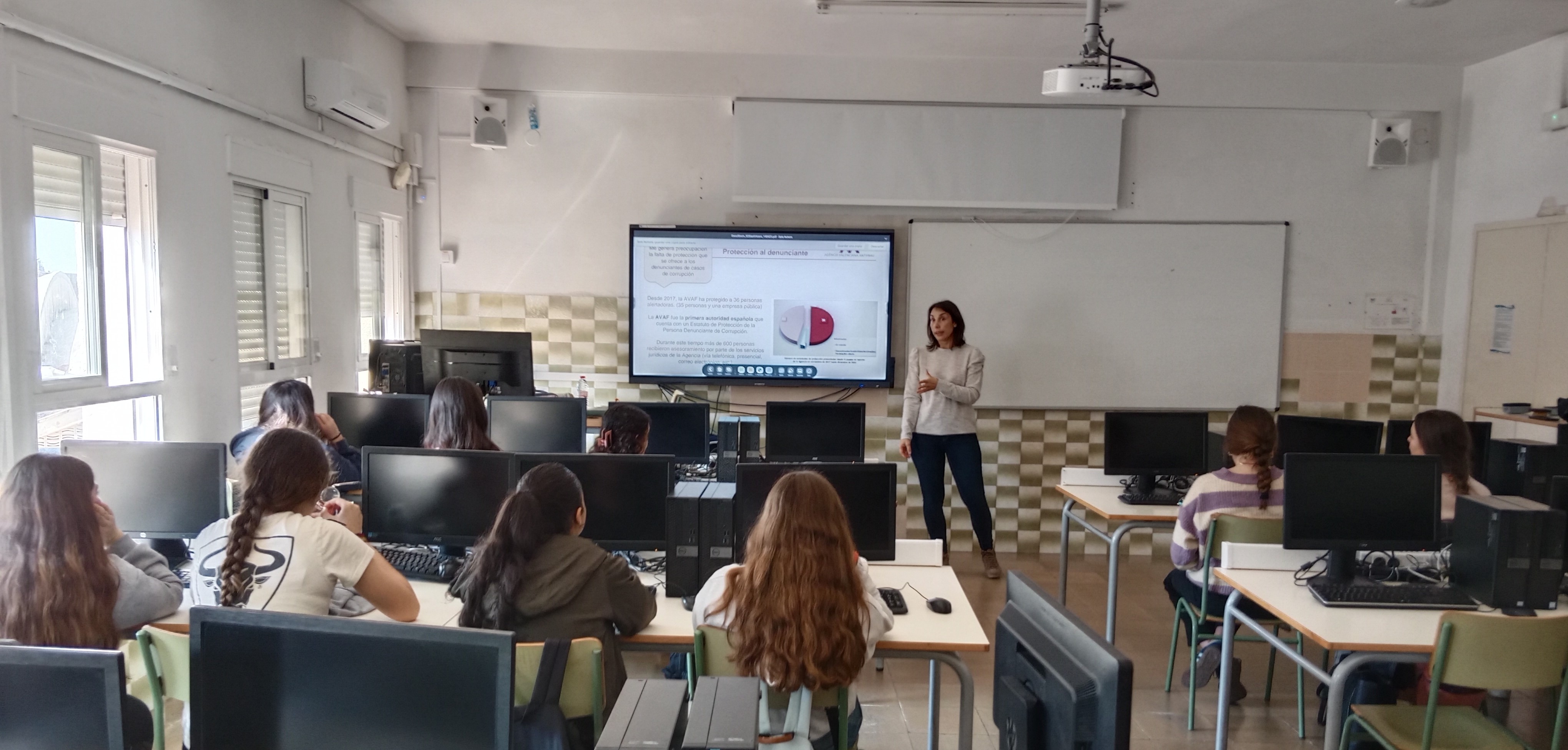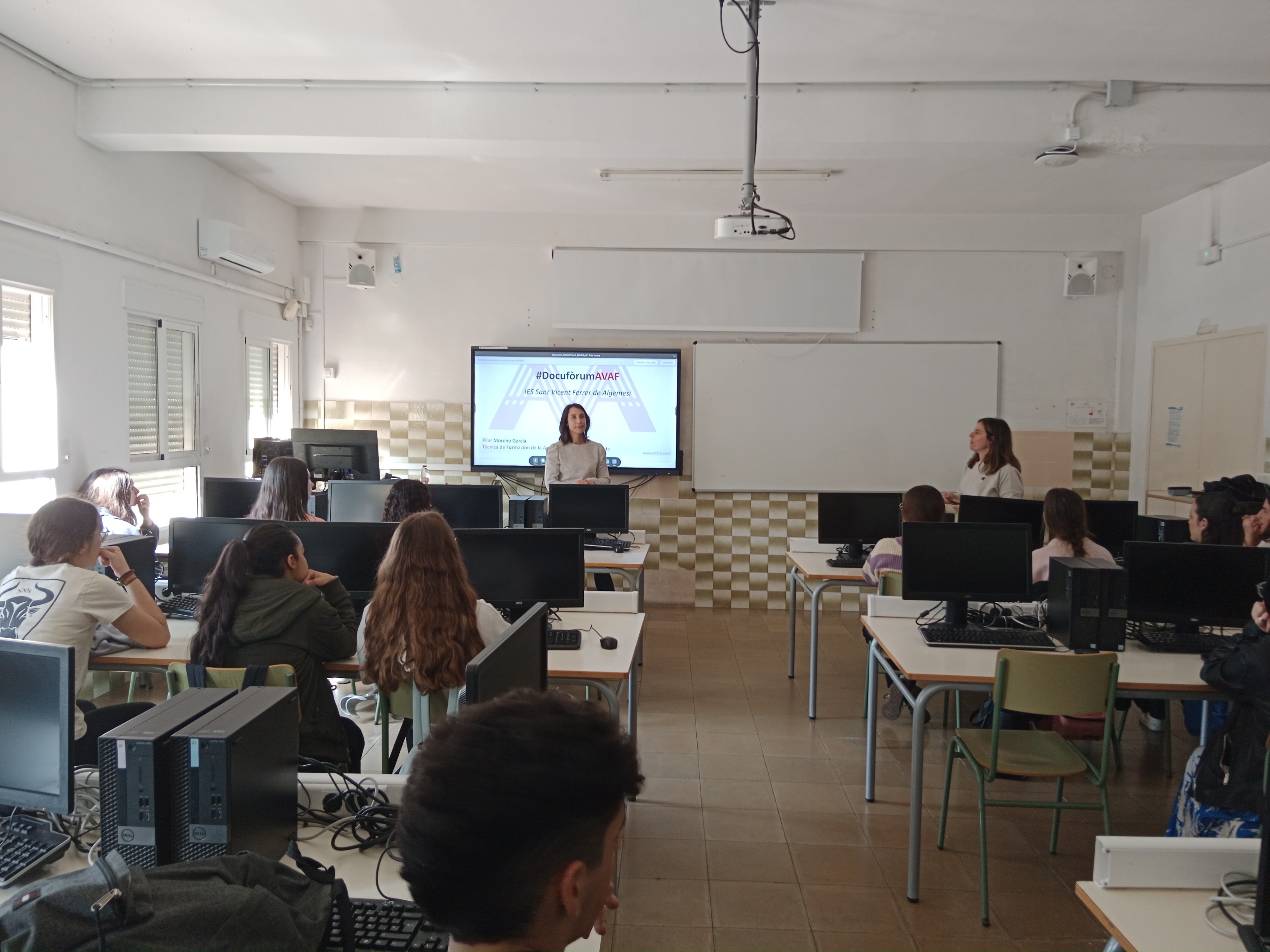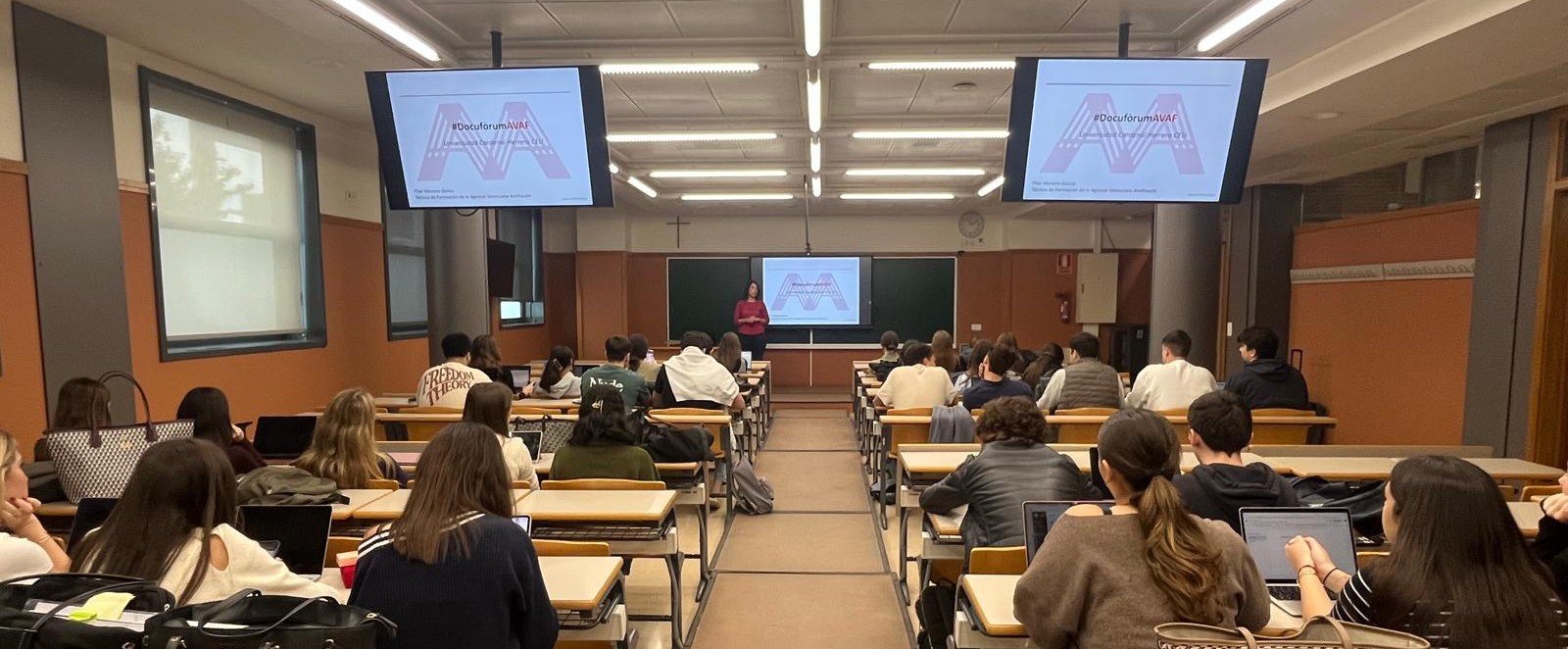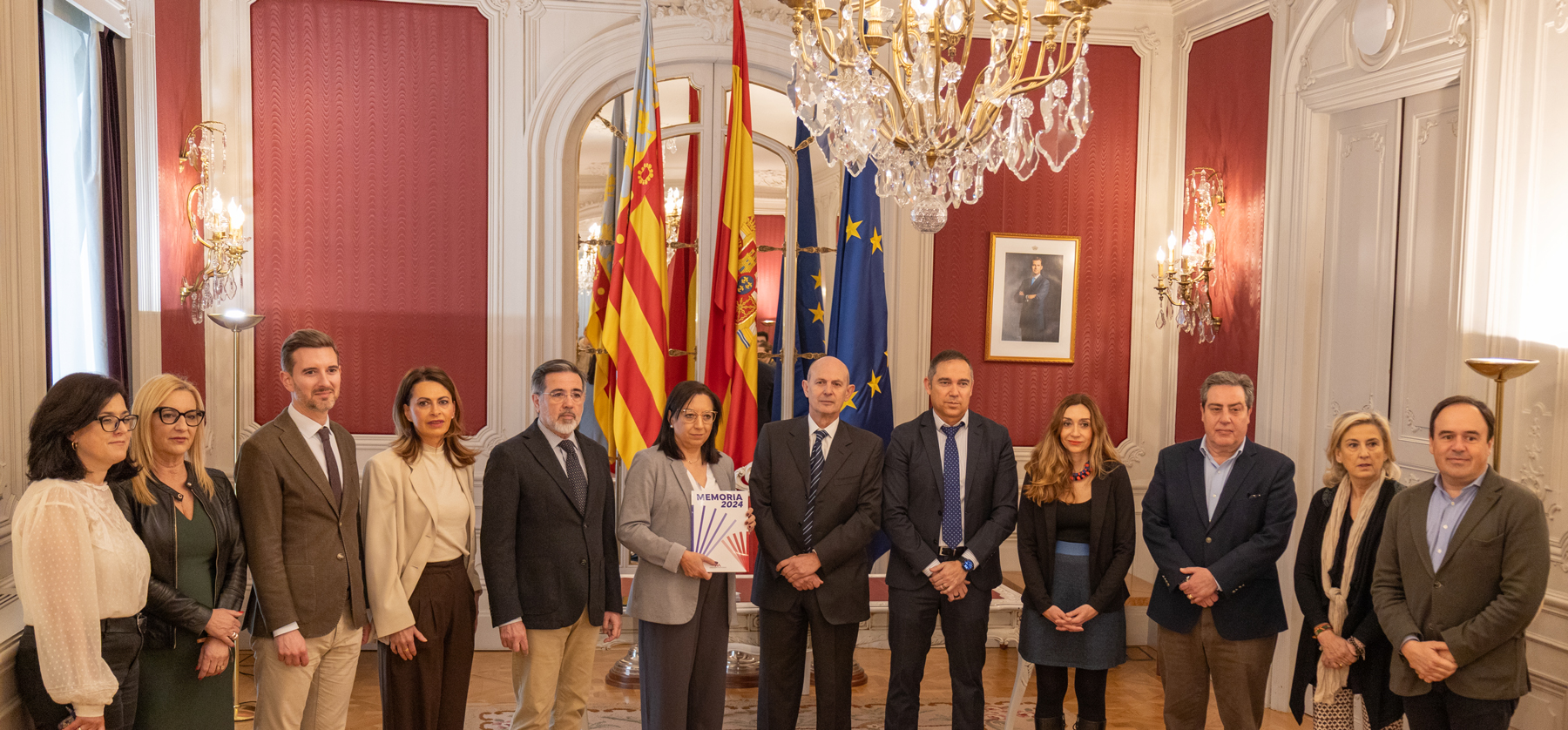Valencia, April 1, 2025.- In accordance with article 22 of Law 11/2016, the director of the Valencian Anti-Fraud Agency, Eduardo Beut, has delivered the Activity Report for the year 2024 to the president of les Corts, Llanos Massó, in an act where the syndics of all the parliamentary groups and the Bureau of les Corts have also been present. The award ceremony took place in the Hall of Mirrors of the Valencian Corts.
The Report includes the Agency’s activity during 2024. Formally, the document is shorter than in previous years to follow the recommendations of the specialized agencies in public transparency, which ask to avoid secondary or redundant data to facilitate access to relevant and significant information.
Among the highlights of the 2024 Report, it should be noted that 564 files have been opened for the complaints filed, where the trends of complaints from previous years are consolidated, with the local administration accumulating the most complaints (56%). The Agency’s Complaints Box, by electronic administration, is the most used means (91% of cases) and 57% of the complaints submitted are anonymous.
Of the 481 files analysed in 2024, 66 investigations have been completed with recommendations to public administrations that have been followed mostly: there are only 7 breaches in the follow-up of the recommendations.
By the end of 2024, the Agency reached 36 whistleblowers with official protection (35 natural persons and one legal entity) since the creation of the Agency.
In 2024, the Agency has promoted the creation of SII (internal information systems) in all public administrations to be able to file complaints, in compliance with Law 2/2023. Thus, 44 new collaboration protocols were signed, more than 800 letters were sent to public entities to remind them of their obligations and an Agency registry has been implemented, where, at the end of 2024, the SIIs of 439 administrations were registered, of which 289 in 2024.
Internally, the Agency has had to face, in the last months of the year, the obligations of human resources organisation, changes in the RPT and in the remuneration and operating conditions that derived from the approval of Law 3/2024, modifying the structure and functions of the Agency, published in the DOGV on 28 June. It has also executed, on September 17, 2024, judgment number 670/2024, of July 9, of the Contentious Administrative Chamber of the High Court of Justice of the Valencian Community, (TSJCV) and has reinstated the dismissed civil servant and the two files, to their workplace.
The Agency has begun to work on strategies to use artificial intelligence in the fight against corruption, while there is a continuous increase in the use of digital administration in citizens’ relations with the Agency and a decline in face-to-face registrations. In addition, there has been a 20% increase in computer attack attempts and 16,670 intrusion attempts have been detected, which have been stopped.
In terms of preventive initiatives, the Agency has updated and promoted the Integrity Code of the Valencian Community, and has given 40 training activities with 144 teaching hours, in which 3,158 people have participated in 2024, mostly public servants and university and secondary education students.
It is also worth highlighting the international projection of the Agency with the plenary meeting of the European network of Neiwa agencies in Valencia and the approval of the Valencia Declaration against corruption. In addition, it participates in the European LOCRli Project, in collaboration with the Anti-Fraud Office of Andalusia and official bodies in Brussels, for the creation of local corruption indicators.
Finally, it should be said that the Agency has responded in 2024 to all the requests for information from the parliamentary groups of Les Corts, which were 7 in the January-July period and 46 between August and December.
You can access the 2024 Activity Report at the following link:
https://www.antifraucv.es/wp-content/uploads/2025/03/MEMORIA_AVAF_2024_CAS.pdf





